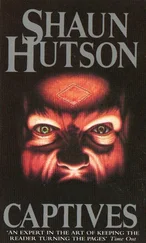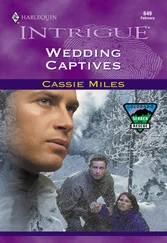Norman Manea - Captives
Здесь есть возможность читать онлайн «Norman Manea - Captives» весь текст электронной книги совершенно бесплатно (целиком полную версию без сокращений). В некоторых случаях можно слушать аудио, скачать через торрент в формате fb2 и присутствует краткое содержание. Год выпуска: 2014, Издательство: New Directions, Жанр: Современная проза, на английском языке. Описание произведения, (предисловие) а так же отзывы посетителей доступны на портале библиотеки ЛибКат.
- Название:Captives
- Автор:
- Издательство:New Directions
- Жанр:
- Год:2014
- ISBN:нет данных
- Рейтинг книги:3 / 5. Голосов: 1
-
Избранное:Добавить в избранное
- Отзывы:
-
Ваша оценка:
- 60
- 1
- 2
- 3
- 4
- 5
Captives: краткое содержание, описание и аннотация
Предлагаем к чтению аннотацию, описание, краткое содержание или предисловие (зависит от того, что написал сам автор книги «Captives»). Если вы не нашли необходимую информацию о книге — напишите в комментариях, мы постараемся отыскать её.
Captives
This is a moving account of a country shaken by communism and anti-Semitism and haunted by recent atrocities, from "a distinguished writer whose vision of totalitarianism is close to Kafka's cloudy menace, universal yet internalized" (Richard Eder,
).
Captives — читать онлайн бесплатно полную книгу (весь текст) целиком
Ниже представлен текст книги, разбитый по страницам. Система сохранения места последней прочитанной страницы, позволяет с удобством читать онлайн бесплатно книгу «Captives», без необходимости каждый раз заново искать на чём Вы остановились. Поставьте закладку, и сможете в любой момент перейти на страницу, на которой закончили чтение.
Интервал:
Закладка:
Looking at the sheet, the effect seems weak.
It burned intermittently somehow, at a low, never tempestuous level, and to a certain extent, it used to illuminate my life, in a magical way, like a fairy tale, but ephemerally. When it was lacking. . it gnawed a little from the shore, but assiduously, and then it came to sweep everything in its path. I saw the danger all too late — nor had I ever counted it as such — conquering me ever more powerfully, lighting that consuming fire, and then there was nothing but a final blow. I became a drunken boat through the spell of the waves, under the eyes of the wharfs, ablaze, crushed .
With her right hand, she pushes the briefcase away and continues looking at the sheet. The infantile jubilation captivates her.
. . conquering me ever more powerfully from all points of view, lighting the consuming fire and then there was nothing but a final blow. I became a drunken boat through the spell of the waves under the eyes of the wharfs, ablaze, crushed — the waves hurling aside the last barriers that blocked our reunion. When you talked to me over the phone we still belonged to one another.
There’s someone behind her. The bottle should have been drunk already. A quick pour. Moistening her lips. That feeling of being watched from behind. Turning to look: confused, frightened. The waiter smiles.
— Would you like anything else?
— No, not yet. For the time being, no. I don’t want anything. No, nothing.
Breast lifted, contemplating the words, mouth pursed, her body temperature rises, lips throb, eyes revive — hate, pleasure, play — and the pencil stabs between the words till arriving at the master correction: “When you talked to me over the phone we still belonged to one another, bodily .” Miraculous! The word had made a place for itself, mastering the line with the smell and taste and distaste of provocation. The sheet trembles between her fingers. These are lucky moments, repeatable anytime and anyhow, especially when there’s no longer any point — when it’s too late: only then is it paid back, revenged.
Again, the strange gaze from behind her: better rush. That’s how it always happens, the pleasure stops just as it begins, hurried, driven away by hostile conventions without being able to linger in the words, in their revitalizing cleverness — how can there be time for anything but words, to be among and between them, to knead, to inflame, to shape them: tomorrow, the day after tomorrow, Wednesday, Thursday, Friday — again, from the beginning?
The waiter has gone — the fingers move by themselves on the corner of the dog-eared page, nervous, uncontrolled fingers trembling with the impulse to counterfeit.
And you will never be able to throw me in another’s arms again. Isn’t this so? Yes, that would be perfect, but there is no more time. As they say about porcelain, once broken, never fixed (more about that later). Tensed, the pencil moves like lightning across the page. A broken piece of porcelain can never be glued back in place — it will be very ugly and will have lost its value (more about that later). This calls for a slurp. The pleasure inflames her. Today, your rhetorical talent overwhelmed me and I accepted that I still have memories of him — after you left I understood that it was only a matter of the past. I resist neither the destructive waves nor the consuming fire. Unexpected and condemnable, you will say, this fickleness of mine. Perhaps unexpected but not condemnable, too, say I (say I!). An earthquake can destroy everything in a matter of minutes. (Yes!) On certain occasions a night was sufficient to destroy an empire. Sometimes it only takes a few minutes to destroy a relationship.
The waiter is idling behind her chair again. She rises, closes her blouse and her overcoat, hesitating with the middle buttons. I may come back to this. I may come back? I may come back to this. . I may come back to this with concrete examples! Sure, that’s the ticket! With concrete examples! A finger pulls nervously at the second button, hurries to the third that closes the top. Shoved into the stuffed briefcase, the sheets of paper crumple between her puffy fingers. Money on the table, a hand signal, and slinking out, eyes aimed at the ground so the waiter won’t see two flushed cheeks.
And now the door is flung open, then closed with her elbow. On the threshold, she smirks naughtily, offering the slightest trace of a smile.
• • •
Body leaning on the door’s edge, Comrade Sebastian Caba slouched against the leather-padded doorframe. Then, imperceptibly, his head, neck, and shoulders slumped along with the rest of his body. Forming peculiar stripes, his white fingers had glued themselves to the dark wood. The bent body, a long, pallid streak against the door’s black border. His dreamy gaze follows the one now running away, as far as possible, in frantic haste, far from the silent office.
For the fugitive, it was an experience of running down the wide steps to escape that gaze burning into the back of his neck. Only, at every step, Sebastian Caba’s face would appear again, on the wall to the right. Sebastian Caba was following him, sprouting from the walls, motionless and omnipresent, with his body bent slightly to the left, his long, attenuated fingers monstrously white on the door’s dark wood. Charging downstairs without making headway, gaze fixed on the white wall, the same tableau hanging always before him: a tall, brown-haired young man, pallid, slouching in sad resignation with his left arm stretching down the length of the doorframe. The long, pale fingers kept poking through the frozen surface of the tableau.
Always at his back, that gaze followed every convulsion of his flight. If only it were possible to escape, to run faster, leap down all the steps, if only each step weren’t broken by the tableau floating before him: the bent man with his thin-fingered hand on the doorframe. The tableau was multiplying, proliferating with every footstep, and it was moving, too, descending at the same rate as the fugitive — doubling and redoubling: dozens of identical tableaus had remained behind, projected onto the walls at the height of the gaze that followed the descending staircase. Always the same tableau rising again in front of each new step, or perhaps there was only the single tableau, a single image springing down the steps like a horrifying shadow moving across the wall, continually enlarging his dread.
Descending quickly, without making any headway. On the wall’s surface, the pale hand protruding from the tableau, from the frame of coffee-colored shadows. Standing in the outline of the door, as in a picture frame, Caba — still, fixed in place, bent to the left — followed his former colleague’s flight with a steady gaze, a stare projected like a terrifying optical illusion from the motionless tableau — motionless except for the gaze and the flinching hand stroking the doorframe: as though in a mirror, the other hand, the hand of the fugitive gleams on the cold banister under the dull gaze from the tableau, moving to the same rhythms, repeating the same movements of Caba’s hand in the doorframe. The steps kept sliding like a nightmarish escalator; dizzying and static, the seemingly impossible escape from the tableau ends in a sudden, cool rain. Awakening: tired, on a street among chilly, huddled pedestrians, hurried clerks, and a strange, narrow, suffocating room for losing oneself, estranging oneself in sleep or dispersion or nothing, something, anything.
The upholstered room had perished, along with the wide marble stairs, then the street had passed away, the pedestrians were no longer visible; next, the spiral of another crooked, twisted, narrow staircase, mounting toward a small, hunched room — a coop or cell or birdcage that refuses respite to the fugitive, a prisoner to himself and his own mystifications, a self-made trap full of imaginary hurdles, perfidious obstacles, and mute monologues. And then she: brought to a stalemate, to the transfer of powerlessness and negation, obliged to assume the complicity, fear, and fury of the one who invents her, made to carry sighs, far-fetched charades, mockingly jubilant in the cadence of vain, useless words — she will disown her own imposture, she will host the meeting of the wanderer with himself and his rebellious memory.
Читать дальшеИнтервал:
Закладка:
Похожие книги на «Captives»
Представляем Вашему вниманию похожие книги на «Captives» списком для выбора. Мы отобрали схожую по названию и смыслу литературу в надежде предоставить читателям больше вариантов отыскать новые, интересные, ещё непрочитанные произведения.
Обсуждение, отзывы о книге «Captives» и просто собственные мнения читателей. Оставьте ваши комментарии, напишите, что Вы думаете о произведении, его смысле или главных героях. Укажите что конкретно понравилось, а что нет, и почему Вы так считаете.












